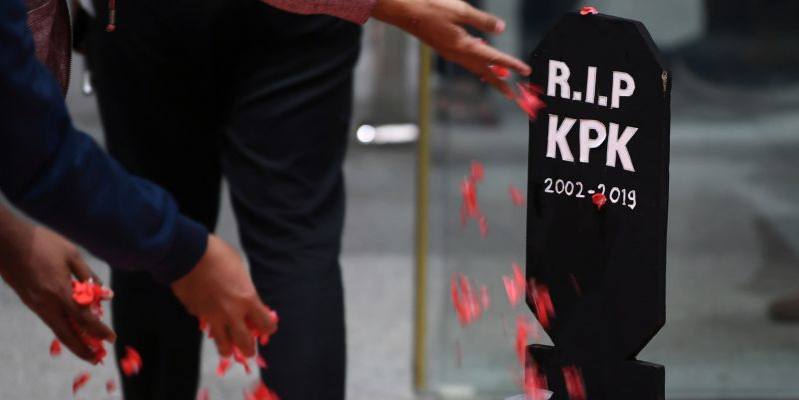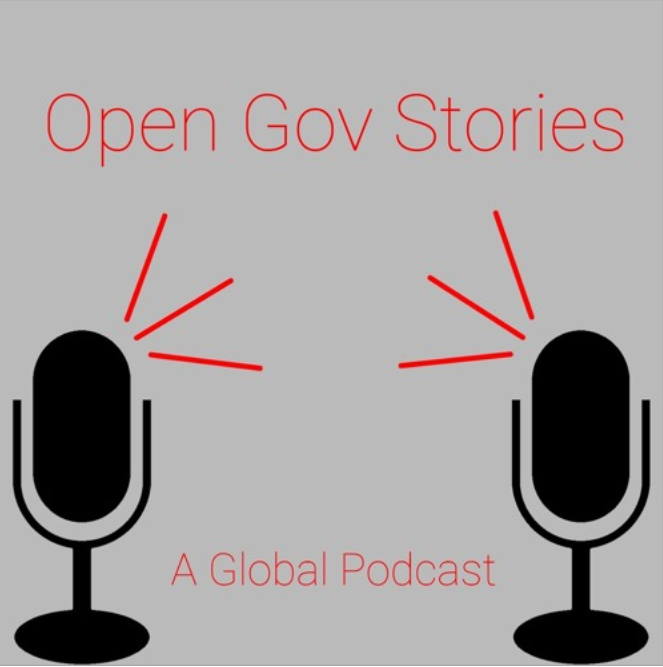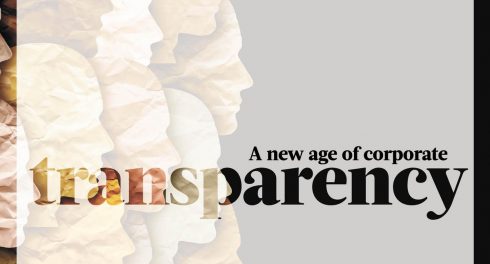
Image: Freestocks-photos from Pixabay
Highlights:
- Big stage, shallow promises?
- Big Data is Watching
- Playing the inside game – too far in?
- Making the most of your assets
- TAI Spotlight: In Defense of Nuance
Big stage, shallow promises?
It’s that time of year again as world leaders, policy wonks and a whole variety of hangers on (like TAI) gather in New York for more events than you can ever handle on the sidelines of the UN General Assembly (UNGA). Judging by the session themes, belief in private sector driven solutions to development is still pretty rampant, but is there enough scrutiny of where it is exacerbating problems? Political and corporate leaders are announcing commitments to carbon reduction, yet we’ve just seen the US administration curb efforts to cut emissions, while Global Witness reveals how huge asset managers hold stakes in firms involved in firms accused of facilitating deforestation.
Another big theme this week? Financing to help countries achieve the SDGs. So, a timely reminder from Sanjeev Gupta and Magdi Ahmed that donors should pay as much attention to equity impacts as simply raising tax ratios and we should all be helping government improve the quality of their spending. Don’t treat tax and spending in isolation.
Want to get to equitable tax outcomes? Fund an ecosystem of actors (stay tuned for new TAI-ODI report to that effect). To that end, some positive baby steps flagged by Andrew Wainer as he breaks down donor support for civil society on tax and Norway’s outlier of close to half of support going to NGOs. Based on Andrew’s analysis, only 13% of reported civil society tax funding is tagged as having a gender component. Hard to imagine support to direct government will do much better. That worries Oxfam’s Nathan Coplin who argues we need to talk about gender equality everywhere – including when we talk about taxes.
Developments on the ground are not always encouraging. Two years after it forwent $8.4b due to tax incentives and breaks, the Philippines is set to reduce its corporate tax rate by 10 percent in the next ten years and also reduce a slew of unnecessary tax incentives. Tax Justice Africa reminds us of the urgent need to close loopholes in tax incentives, exemptions, and illicit financial flows to meet spending goals on education, health, and agriculture. And while Google prepares to pay a $500m fine to the French government for dodging taxes, Apple vows to put up a fight. It says the $14b tax bill levied by the European Commission’s 2016 ruling for back taxes “defies reality and common sense.” That might depend on how you define “common.”
Big Data is Watching
Artificial intelligence (AI) features somewhere on most UNGA-related agendas this week and CV Madhukar of Omidyar Network makes the case that privacy-enabling tech is catching up to allow for “GoodID” applications. Is it too late? A new report on AI Surveillance from Carnegie Endowment for International Peace revealed at least 75 out of 176 nations surveyed globally are actively using AI technologies for surveillance purposes. Although African countries are still struggling to adopt AI technologies, Chinese companies are quickly penetrating African markets amid issues of digital privacy, information censorship, surveillance, and internet shutdowns. People’s data is increasingly vulnerable to political exploitation – a case in point, Britain’s Conservatives have been warned they may be breaking data laws by gathering information about pro-Brexit voters.
Increased surveillance only adds to the worries of independent journalists as press freedom had another worrying week. In Nigeria, the government allegedly sent security agents to arrest journalists working with online news platform, Sahara Reporters, whose publisher has been in custody since August. The same week, one of the President’s media aide threatened a State House Correspondent. In Tanzania the case against investigative journalist, Erick Kabendera, shows Tanzania’s John Magufuli widening stance on media crackdown even as International press groups are calling for press freedom and safety of journalists in Europe.
Of course, it is not just journalists who need worry. In Zimbabwe, the US Embassy alleges that more than 50 civil society, labor, and opposition leaders have been abducted since January. We saw more attention drawn to this alarming trend this week as Zimbabwean doctors ask the world to help them #FindDrPeterMagombeyi who was abducted days after receiving threats from suspected state security agents.
As the UN General Assembly continues on, CIVICUS shares their thoughts as governments conduct reprisals against those who expose human rights violations, calling for increased accountability from the UN.
Playing the inside game – too far in?
Last week, we told you about how civil activists turn politician in Ukraine politics are potentially sidelining civil society in debates. This time around in Nigeria, Fisayo Soyombo asks if leading civic advocates should be in government following the case of BudgIT CEO Seun Onigbinde who accepted a position with the government. Although Onigbinde resigned barely two weeks after, Yinka Awosanya wonders if anyone in the civic tech space will ever take up a political appointment offer in the near future. Only time will tell, but Abdullahi Alim of the World Economic Forum argues that if the next generation wants change, young Africans must abandon their dream of a private sector and enter the political arena. We see leaders switch roles between government and private sector all the time as administrations age and change, why not similar switching between government and civil society?
Turning to participation in a broader sense, Annabel Lee Hogg has an idea on how we can protect democracy. With 55% of the world’s countries using some form of democratic governance, Hogg says we must catalyze new partnerships to ensure the preservation of good governance, open democracies, and accountable institutions. Find out how democracy correlates to safer debt in Africa as Kanika Saigal wonders if democracy had also boost investor’s sentiment elsewhere in the world.

RIP KPK. Civil society activists held a mock funeral for the anti-graft agency on 17 September. Photo by Wahyu Putro A for Antara.
There seems to be an unsettling trend emerging to undermine anti-corruption institutions. We’ve tracked several cases of commissions and agencies getting shut down or contested in TAI Weekly in recent months – now signs of one more. A proposed amendment could spell disaster for Indonesia’s famed Corruption Eradication Commission (KPK) after national legislators finalized a bill that will likely neuter the Commission. For those still in action – does innovative enforcement help or hurt anti-corruption efforts? Gerhard Anders and Matthew T. Page aim to find out in their research project.
The European Union wants Africa government to be more realistic in the way it fights corruption. Their recommendation? A robust independent justice system and effective public administration that tackles corruption. Meanwhile, the Gambian government may prosecute its former president, Yahya Jammeh, on allegations of theft and corruption. In Ghana, twenty civil society groups and the Ghana Anti-Corruption Coalition have petitioned the Minister for Finance to provide more details on alleged GH¢2.75bn [USD $499m] procurement savings (pair with Essential Watching below). Most startlingly, read how Nigeria may end up paying a dead man’s estate one-fifth of its foreign reserve, USD $9billion, over a failed project.
Essential Watching – Sole Source Shenanigans
What happens when officials favor insider deals? Watch this expose alleging how a firm owned by the head of Ghana’s public procurement authority manipulates the sale of government contracts.
Making the most of your assets
Among TAI donor members there is a regular conversation thread on if/when to use donor voice as well as funds, so interesting to see South Asian philanthropic leaders go public in asking Gates Foundation to rescind its award to Indian’s Prime Minister, Narendra Modi, who they have accused of human rights violations. Activists said if Modi is honored, it would diminish human rights, demoralize Indian civil society, reward impunity, and send the message that minority rights don’t matter in India.
Beyond advocacy and money, Andy Ho of the Salzburg Global Seminar heralds in the Center for Effective Philanthropy of the convening superpower of philanthropic foundations – their unique ability to convene people together to spark new insights and partnerships (something we at TAI will always prize)
What about another donor asset – their data? To explore its potential you may want to play with the Development Cooperation Landscape tool that sucks in data collected under the International Aid Transparency Initiative and generates detailed visualizations of public and private charitable flows by country and sector. Lots of holes, but a conversation starter at least.
Preparing knowledge for learning and collaborative action? Check out USAID’s Collaboration, Learning, and Adaptation Toolkit. Also have a look at the new resource on Intrac’s M&E Universe.
TAI Spotlight: In Defense of Nuance
In Defense of Nuance | Ford Foundation
As Darren Walker begins his seventh year as president of the Ford Foundation, he reflects on all that has changed in our world since 2013. According to Darren, “we cannot let the perfect be the enemy of progress. Within complexity and nuance, we [must] find hope for the year ahead.”
Cecilia Muñoz Joins MacArthur Board | MacArthur
Cecilia Muñoz, Vice President for Public Interest Technology and Local Initiatives at New America, will help to set policies and strategy for the Foundation.
Charting a Course Toward Health for All | Hewlett Foundation
Ahead of the high-level panel on universal health coverage at the United Nations General Assembly, Hewlett’s Program Officer, Global Development and Population, Pat Scheid highlights how she hopes the principles of ensuring an enabling legal and policy framework, fair financing, democratic priority setting processes, and strengthening meaningful oversight and accountability are present at the panel.
Building an Ecosystem and why it matters | Luminate
Luminate’s Managing Director in Africa, Ory Okolloh, wrote on how Luminate is building an eco-system in Nigeria to increase accountability, reduce corruption, and ensure public funds are spent in delivering the services the public really needs.

*Don’t forget to check out the Open Gov Stories Global Podcast Series with Open Gov Hub. It goes behind the scenes to explore why social changemakers do the work they do. Listen to more than 20 stories from people in the TAP field – new ones to come each month. Plus you can record and add your own.
Calls:
Reagan-Fascell Democracy Fellows Program – October 1
The Rockefeller Foundation-Acumen Student Social Innovation Challenge – October 15
Craig Newmark Cyber Journalism Fellowship – November 1
Small Charities Challenge Fund for UK registered NGOs and Charities – November 28
Calendar:
Finding New Opportunities for Transparency, Accountability, and Civic Participation to Improve Health – September 25, 2019 (Cambridge, Massachusetts)
IDEAS 2019 Global Assembly and Third International Conference on Evaluating Environment and Development – September 30 – October 4, 2019 (Prague, Czech Republic)
2019 Social Practice of Human Rights Conference – October 1-4, 2019 (Dayton, Ohio)
Liberating Structures Festival – October 7 – 11, 2019 (The Hague, Netherlands)
Global Symposium (COPGS) on Citizenship, Governance, and Accountability in Health – October 15-18, 2019 (New Delhi, India)
What Works Global Summit 2019: Building Evidence – October 16 – 18, 2019 (Mexico City, Mexico)
7th SAMEA Conference: Shaping M&E for a sustainable future – October 21 – 25, 2019 (Gauteng, South Africa)
Global Perspectives 2019 – October 29 – November 1, 2019 (Addis Ababa, Ethiopia)
Global Partnership for Social Accountability – Global Partners Forum 2019 – November 19-21, 2019 (Washington, DC)
ODI Summit 2019 – November 12 – 2019 (London, United Kingdom)
The Story Conference – November 27 – 29, 2019 (Melbourne, Australia)
Transparency International: 19th International Anti-Corruption Conference – June 2 – 5, 2020 (Seoul, South Korea)


